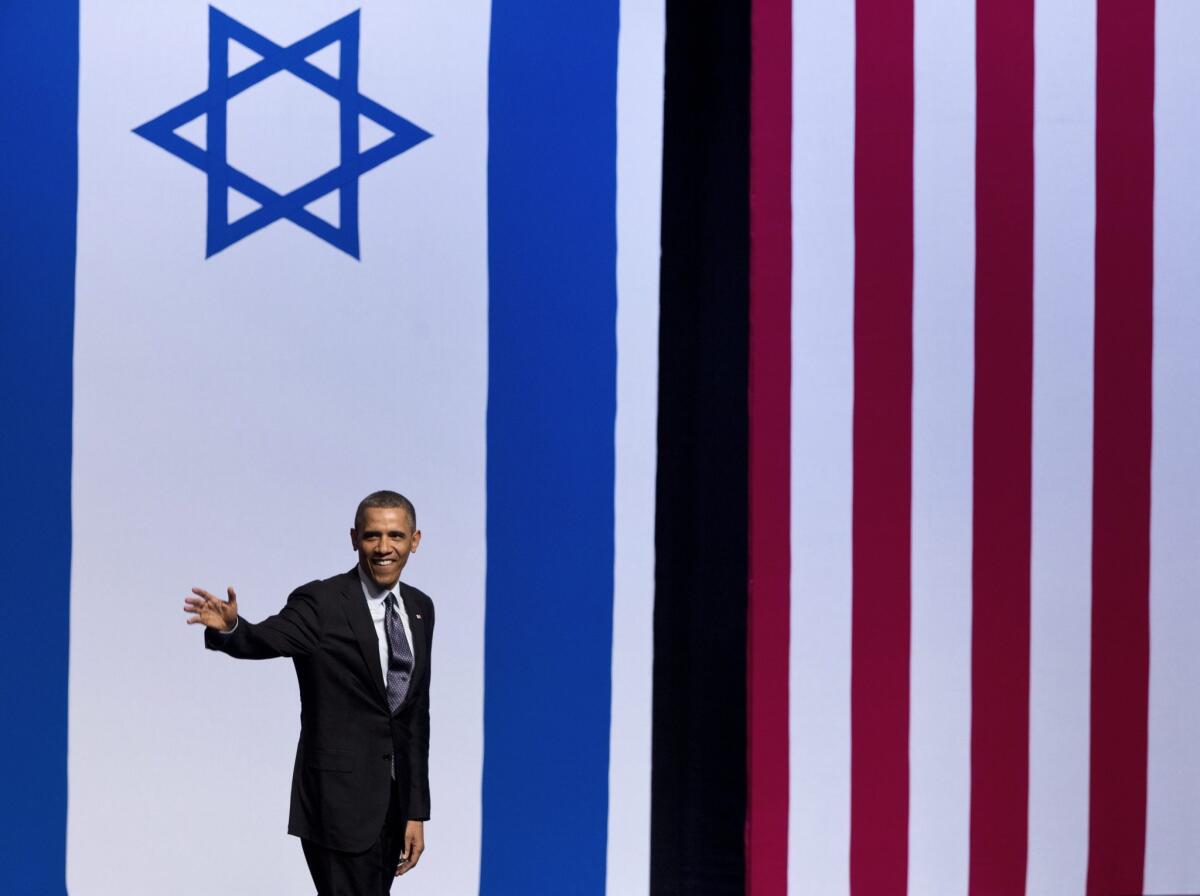U.S. ‘neutrality’ on Jerusalem

- Share via
For those who don’t follow the intricacies of Middle East diplomacy, it might seem self-evident that the passport of an American child born in Jerusalem should note “Israel” as his place of birth. That’s also the view of Congress, which enacted legislation specifically allowing such a notation. But, like its predecessors of both parties, the Obama administration disagrees. This week, in a case involving a 10-year-old boy, a federal appeals court rightly ruled that the Constitution entrusts this decision to the executive branch.
The 3-0 decision by the U.S. Court of Appeals for the District of Columbia Circuit upheld the State Department’s refusal to allow the parents of Menachem Binyamin Zivotofsky, who was born in Jerusalem in 2002, to list his birthplace on his passport as “Jerusalem, Israel.” In doing so, the court declared unconstitutional a 2002 law that directed the secretary of State, at the request of a U.S. citizen born in Jerusalem (or the citizen’s parent), to record the place of birth as Israel.
Writing for the court, Judge Karen LeCraft Henderson persuasively concluded that the law intruded on the president’s exclusive authority to recognize foreign governments and their territorial claims. Henderson conceded that Congress had the power to regulate rules for the issuing of passports, but said that power could not be used to nullify “a carefully calibrated and long-standing executive branch policy of neutrality toward Jerusalem.”
Since 1948, both Republican and Democratic presidents have refused to recognize Jerusalem as Israeli territory; like the Clinton and George W. Bush administrations before it, the Obama administration argues that the final status of the city must be determined in negotiations between Israel and the Palestinian Authority. No one believes that the United States would ever accept a peace agreement in which Israel didn’t exercise authority over West Jerusalem, which it has controlled since 1948. But presidents have concluded that prejudging the status of Jerusalem would undermine the right of the parties to determine their own future in bilateral negotiations.
That strikes us as a prudent policy. In any case, the issue before the court wasn’t the wisdom of U.S. “neutrality” on the status of Jerusalem but rather which branch of the federal government gets to make the decision. The appeals court was right to conclude — and the Supreme Court should agree — that the law passed by Congress “intrudes on the president’s recognition power and is therefore unconstitutional.” Menachem Zivotofsky’s parents are free to say that their son was born in Israel, but the U.S. government doesn’t have to agree.
More to Read
A cure for the common opinion
Get thought-provoking perspectives with our weekly newsletter.
You may occasionally receive promotional content from the Los Angeles Times.





